The views expressed in our content reflect individual perspectives and do not represent the authoritative views of the Baha'i Faith.
Robert Turner, our readers may recall, was the first African-American Baha’i. From 1871 until his death in 1909, Mr. Turner served as a respected employee of the wealthy Hearst family in California.
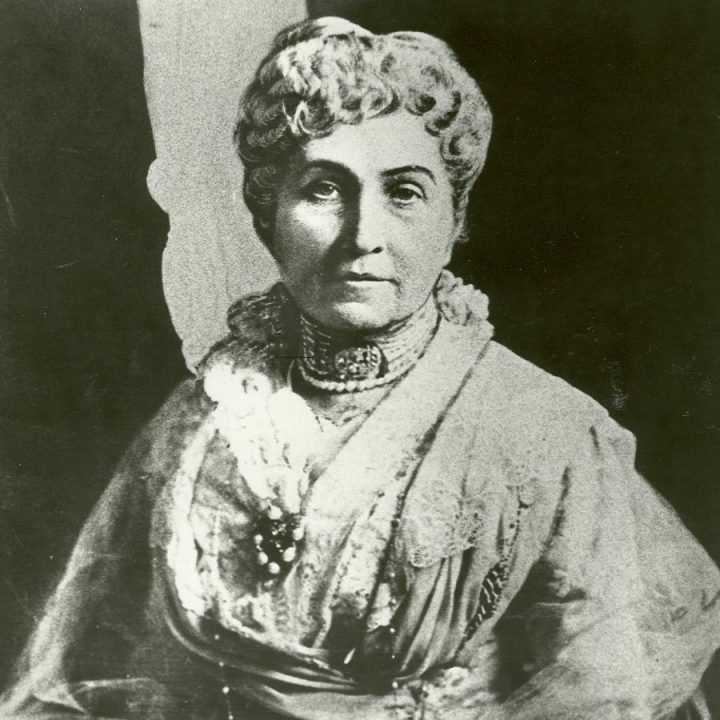
In 1891, when Phoebe Hearst was widowed, Mr. Turner became her trusted butler. In February of 1899, Mr. Turner arrived in Haifa with others in the Hearst party to join the first American Baha’i pilgrimage to the Holy Land, where Abdu’l-Baha resided after the exile of Baha’u’llah and his family from Persia. Later, in 1912, Abdu’l-Baha made a historic journey to North America, where he spoke to audiences across the United States and in Montreal, Canada as well.
Another early African-American Baha’i, Charles Henry Tinsley, who we first met in Part 46 of this series, also worked for the Hearst family for a time. According to Kathryn Jewett Hogensen’s book Lighting the Western Sky, Charles Tinsley most likely became a Baha’i through his friendship with Robert Turner, and also learned about the Baha’i teachings from Miss Anne Apperson, Phoebe Hearst’s niece (see Ella Goodall Cooper’s narrative below).
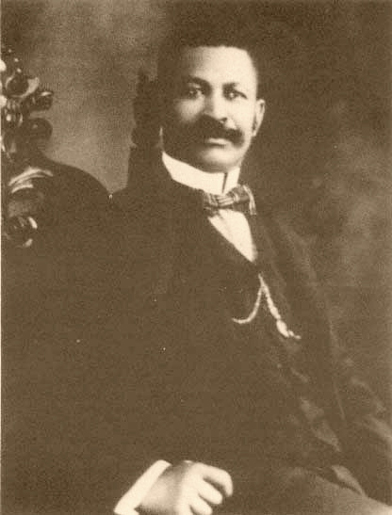
Ella Goodall Cooper, another early American Baha’i from California, wrote about Charles Tinsley. (Read Ella Goodall Cooper’s brief biography) Charles Tinsley regularly attended Baha’i gatherings at Ella Goodall Cooper’s home in Oakland, California until he became partially paralyzed and had to use a wheelchair. Charles Tinsley resided at 1247 1/2 Webster, San Francisco, California, according to the Crocker-Langley City Directory for 1912 (San Francisco Public Library). Ella Goodall Cooper wrote:
Tinsley was not working any more for Mrs. Hearst when Abdu’l-Baha was here in 1912. He had a humble little house with his wife, and had a broken leg and and couldn’t get down to the Baha’i meetings. So Abdu’l-Baha went to his house to see him. Goodall and Ella Goodall Cooper went with him, and Mrs. Goodall wrote the highlights in longhand as best she could the story Abdu’l-Baha told him. – Ella Goodall Cooper, Cooper Collection, M-7, Box 24, Folder 15 “Charles Tinsley,” United States National Baha’i Archives.
This is one of Ella Goodall Cooper’s accounts of Abdu’l-Baha’s October 10, 1912 home visit to Charles Tinsley:
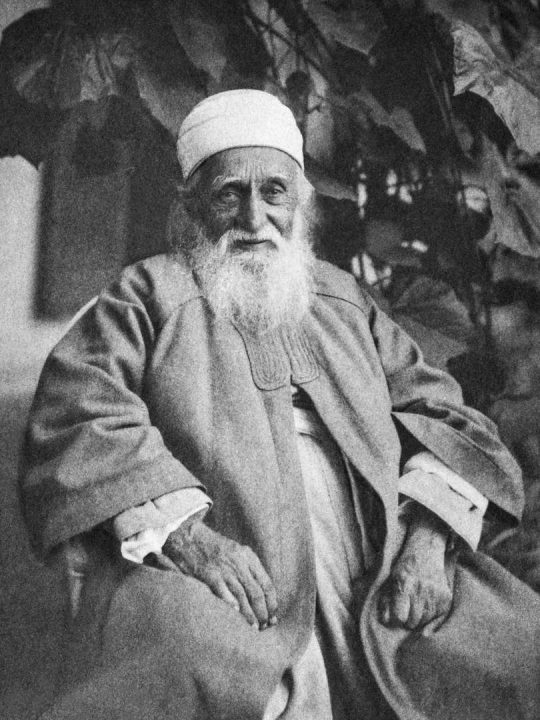
When Abdu’l-Baha came to San Francisco in October, 1912, one of the firm believers was Charles Tinsley, a Negro butler formerly in the household of Mrs. Phoebe Apperson Hearst at Pleasanton. He had received the Baha’i Message from her niece, Miss Anne Apperson, and was eagerly anticipating Abdu’l-Baha’s visit. But Alas! Shortly before [Abdu’l-Baha] arrived, Mr. Tinsley had been unfortunate enough to meet with an accident in which his leg was broken and he was laid up in bed for many weeks. Being thus obliged to miss all the meetings and the feast, and the intimate association the other friends were privileged to enjoy with Abdu’l-Baha during His stay, poor Mr. Tinsley was very unhappy. When we explained to Abdu’l-Baha that he was suffering mentally as well as physically in his bitter disappointment in being so deprived, Abdu’l-Baha replied. “Well, if he is not able to come to see me, I will go to see him.” And so we drove to the humble home of Mr. Tinsley and his wife and found him in bed not only sad but even rebellious.
Abdu’l-Baha entered the room like a burst of sunshine, saying in His vibrant voice, “How are you? How are you? I am very glad to see you.”
Mr. Tinsley replied, “I am well except for this broken leg which has kept me in bed for a long time. I am impatient to be up and out and working for the [Baha’i] Cause, and I cannot understand why I should have been so afflicted.”
Abdu’l-Baha said: “You must not be sad. Cheer up. Praise be to God, you are dear to Me. Come, I will tell you a story.” Seating Himself on the edge of the bed, Abdu’l-Baha took Mr. Tinsley by the hand and began.
Once upon a time there was a great king who, having much love for one of his subjects, wished to appoint him to a high office. In order to train him, the king gave orders that he must be thrown into prison and after he had been there a certain length of time he was to be taken out and bastinadoed. He was then to be allowed to recover from this suffering, and finally the order came from the king that he must be hanged on the gallows until he was nearly dead. He was then to be taken to the hospital, and when he had sufficiently recovered he was brought before the king. It is easy to imagine the feelings of the poor man who, through these many trials, had had no word from the king who he loved so devotedly. He was unable to understand the meaning of these strange orders, and he suffered intensely both mentally and physically.
When he was finally brought before the king he threw himself on his knees and cried, ‘O my Lord, my Liege, your Majesty, what does this mean, these terrible ordeals?” I thought you loved me.’ The king lifted him to his feet and tenderly embracing him said: ‘I do love you. I have chosen you from among all my subjects to make you my prime minister, and these ordeals you have suffered are to make you know what punishment means. When you become prime minister you will have in your hands the lives of countless thousands. Whenever it may become necessary for you to order a man to be punished by being cast into prison you will know how it feels. If it should become necessary for you to order a man to be bastinadoed you will know how that would feel. If you should be obliged to condemn a man to death on the gallows you know how even that feels. It is because of my deep love for you, it is because of your great capacity, that I have chosen you for the highest office in the land, and have trained you for that purpose.’
Then, turning to Mr. Tinsley, Abdu’l-Baha said:
Even so it is with you. After this ordeal you will reach maturity. God sometimes causes us to suffer much and to have many misfortunes so that we may become strong in His cause. You will soon recover and be spiritually stronger than ever before. You will work for God and carry the Message to many of your people.
The presence of Abdu’l-Baha and the vibrant tones of His voice as He told the old oriental story had the effect of immediately changing Mr. Tinsley’s attitude toward his misfortunes, and, as Abdu’l-Baha left the room he was smiling happily. When, a few moments later, Dr. E.D. [Elisha Douglas] Shaw, one of the members of our Baha’i community, made his usual call [to] Mr. Tinsley, he was amazed to see the change that had taken place. He reported to us later that the atmosphere of the room had been changed with spiritual radiance, and Mr. Tinsley had been so deeply impressed that he eagerly repeated every detail of the heavenly visitation. He seemed to have grasped the true meaning of such tests and trials, and we can all testify that since that time no trouble has ever daunted him or clouded his spiritual happiness.
Even now, again laid low by a sudden affliction, his spirit is serene and his faith unwavering, and it is he who cheers those who call to condole with him. – Ibid.
Abdu’l-Baha paid a special visit to Charles Tinsley when he was immobilized and homebound by a broken leg – and was heartbroken and bitterly disappointed by the thought of not being able to see Abdu’l-Baha. When Abdu’l-Baha learned about this, he immediately made special arrangements to personally visit Mr. Tinsley.
This quiet, intensely personal visit, although historic in its own way, happened without fanfare. A shortened version of this story was published a year later in Star of the West, a publication widely circulated among the early American Baha’is. The fuller story of this event, recounted here, is preserved in an archival document, now being brought to light well over a century later. It takes on special significance as an instructive example of the special regard Abdu’l-Baha had for African Americans. His visit, an expression of the loving compassion the Baha’i teachings ask us to show to all members of the human family, regardless of race or social status, could be considered a powerful lesson regarding the exceptional quality of inter-racial relationships he wished to cultivate in the American Baha’i community – and throughout the entire world.
You May Also Like
Comments



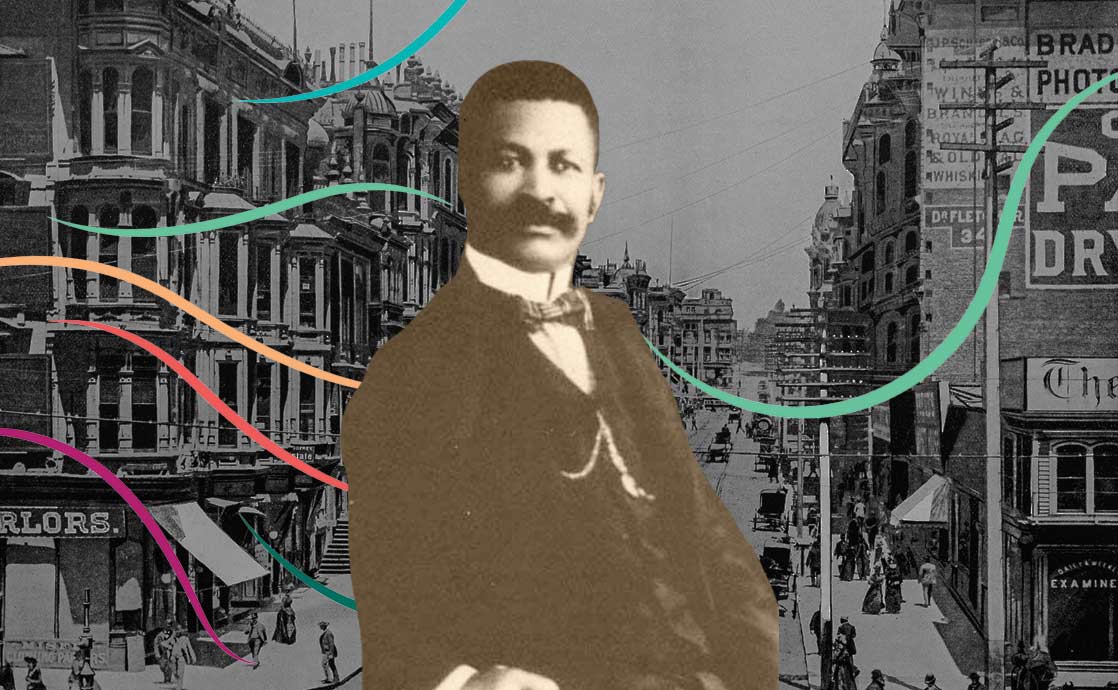
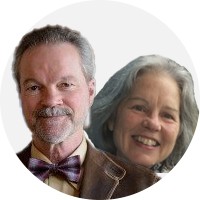












Thank you for sharing this story.
It has inspired me.
Stefan